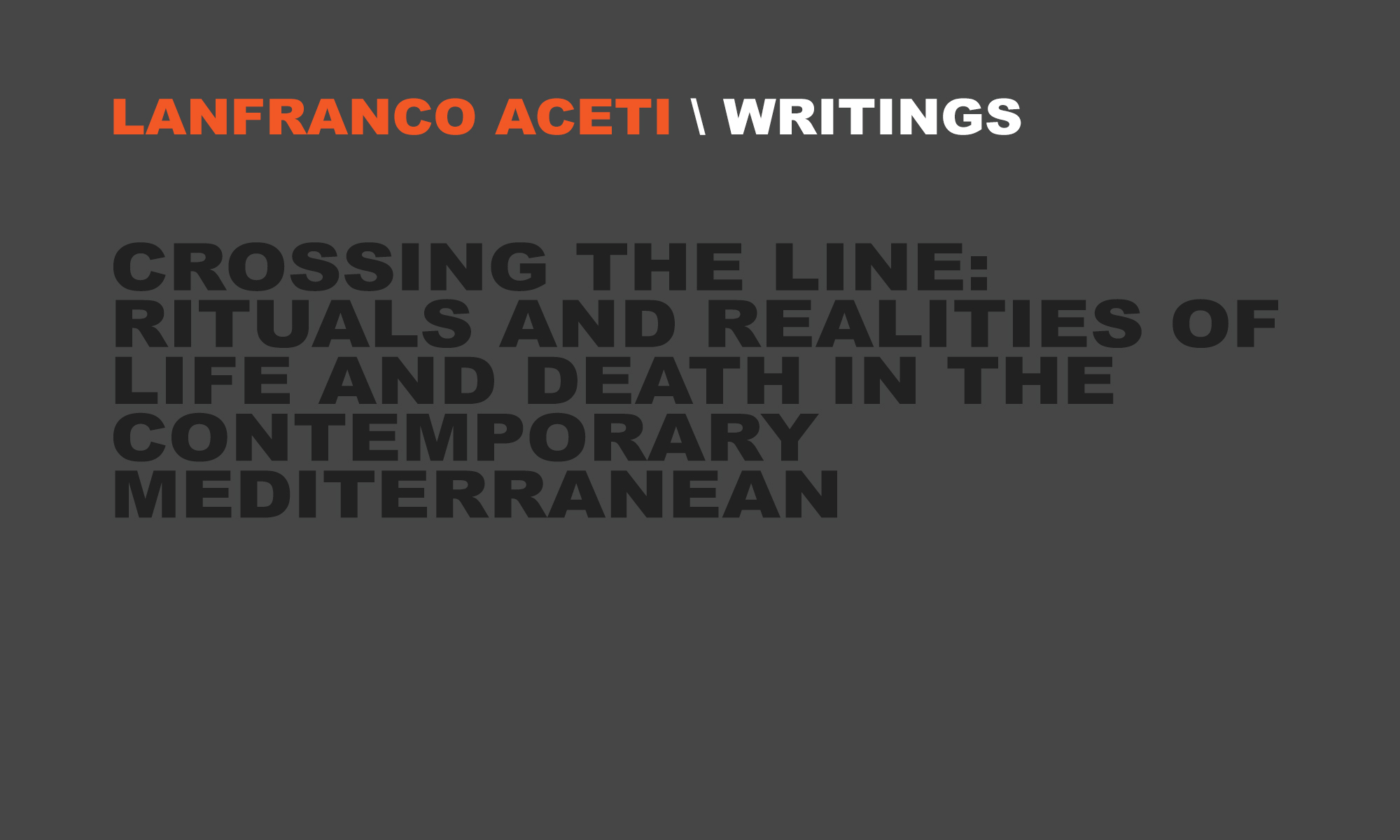Crossing the Line: Rituals and Realities of Life and Death in the Contemporary Mediterranean is my new essay presented at Harvard University for the conference Spaces, Scales, and Routes: Region Formation in History and Anthropology. The conference is convened by Professor Vincent Brown and Professor Ajantha Subramanian and it is an important analysis of contemporary social practices globally and in the Mediterranean. The conference seeks to examine the spaces, scales and routes of such dynamics by promoting a comparative approach to region formation.
Abstract: There is a practical impossibility in ‘objectively’ describing the complex layering of migration and reception, both of which collide against the walls of memories, traumas and socio-political realities. These complex interactions are based on processes of cultural mythologies’ sedimentations, differentiations and negotiations of the dramas of people’s journeys of survival and arrival. In particular, when the issue of migration is not explored through local realities imbued of emotive connections, but dissected via the detached logic of positivism or what has been called ‘the cold heart of Europe’ that beats for an even colder capitalistic brain, what is offered for analysis are a series of desensitized and clinically sterilized data that can be interpreted, manipulated and subjugated to the multiple needs of the EU’s body politic.
If the EU represents the reconciliatory nature and softness of power of an incongruous group of 28 states, the Mediterranean – in this instance – acts as the mirror which reflects that image, revealing its cracks, possible future conflicts and the sum of traumas which pit one ‘kind’ of humanity versus another via a series of linguistic qualifiers that place people outside the lines of legality and the borders of national states.
Outside these lines there are the stories of migrants left to die in the cold waters of the Mediterranean, trapped in the byzantine bureaucracy of contradictory national legal systems, abandoned to waste away in centers that have very little in common with places of hospitality and refuge but share much more with prisons. These are people that are ditched beyond the lines of acceptance and cast as unrecognizable and stateless beings with no human status.
An emotive anthropological methodology could perhaps assist in understanding the paraphernalia of power that sell this drama with false commotion and circumstantial platitudes, continuing to defend the logic of both money and power. The essay will argue that contemporary remnants of ancient Mediterranean rituals could be used to bring back the ‘human,’ at a personal level, rejecting the positivist rationale of a European Union that excludes migrants from the ranks of beings worth saving through brutal force, omission and silence.

